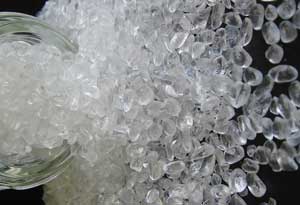Polyscope focus on high-heat compounds pays off

Polyscope, the Netherlands-based producer of styrene maleic anhydride (SMA) copolymers, as the pioneer for heat performance promotion of engineering plastics, has seen the use of its compounds escalate in sunroof frames in vehicles, said Ferdi Faas, Business Unit Director Engineering Plastics, speaking at a pre-K2016 event in Antwerp, Belgium.
Having shown the first large thermoplastic sunroof frame, made of its Xiran compound, for serial production of the Citroen DS3 Cabrio at the K2013, Faas says Polyscope has added on as many as 28 sunroof system suppliers in the three years. “We are now working with even more automotive sunroof systems suppliers in the market,” said Faas, adding that the compound offers high dimensional accuracy, low warpage, superior adhesion and a low density of the final part.
The company is now expanding its Xiran heat booster range. Originally introduced to increase the high temperature resistance of acrylonitrile butadiene styrene (ABS) and acrylonitrile styrene acrylate (ASA), Xiran heat boosters are now also used in increasing the heat performance of other styrenic polymers, such as polystyrene (PS) and styrene acrylonitrile (SAN), as well as polymethylmethacrylate (PMMA).
The company, which will celebrate its tenth year in business this year, says it has a leading position at large global ABS and ASA polymer producers and compounders since the introduction in 2013 of a special Xiran grade with high efficiency Xiran IZ.
These grades, which are terpolymers based on styrene, maleic anhydride and a third monomer, N-phenylmaleimide, allow for improved thermal performance, with very low levels of residual volatiles and easy processability at standard processing conditions. The compounds are used in automotive applications, consumer products and appliances where increased heat resistance is required.
Building on the current success, Polyscope recently added a new grade, which boosts heat resistance even further. The new grade has a glass transition temperature (Tg) of 198˚C and can be exposed to high processing temperatures with excellent miscibility in styrenic polymers.
Faas also emphasised that the Asian market is important. “A number of large global compounders are in South Korea and China, where we already have a large presence. It is part of our strategy to expand our activities outside of these two countries,” he said, adding that Polyscope would be seeking more distributors in Southeast Asia.
At the K show, Polyscope will introduce a new compatibiliser, as an extension of its Xeran product. Faas said that the company is now trialling the product and would launch it at the K show in October.
(PRA)Copyright (c) 2016 www.plasticsandrubberasia.com. All rights reserved.












































